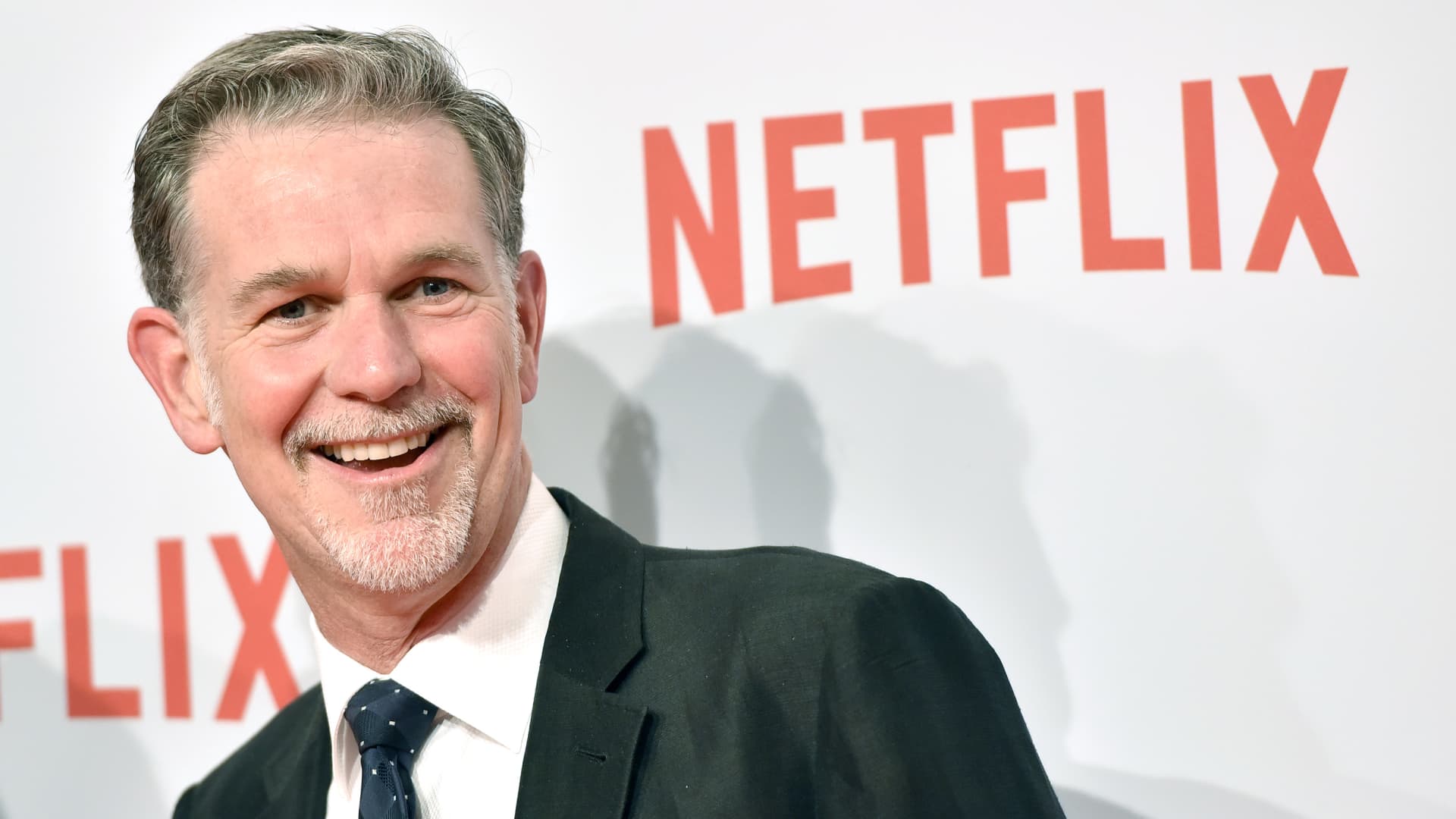Before co-founding Netflix, Reed Hastings thought another of his business ideas would become a household name.
Specifically, it was a “foot mouse” — where users could control a computer cursor with their feet, Hastings said at a recent Stanford Graduate School of Business event. He believed in its potential so much, he said, that he almost dropped out of grad school to build a company around it.
“It was a terrible idea, but I was equally committed to that terrible idea as I was to Netflix,” he said.
Hastings, who currently serves as Netflix’s executive chairman, said he’s always believed his business ideas could change the world — his streaming service was just the first time he was right. Over the years, he’s attributed that commitment and confidence to his success, and the success of other startup founders.
“As an entrepreneur, you have to feel like you can jump out of an airplane because you’re confident that you’ll catch a bird flying by,” Hastings told Wired in 2012. “It’s an act of stupidity, and most entrepreneurs go splat because the bird doesn’t come by, but a few times it does.”
In the case of the foot mouse, Hastings was a Stanford graduate student at the time, working toward his master’s in computer science. He felt like he was wasting time transitioning between his keyboard and his mouse, he said: He’d have to stop typing, move the mouse and then refocus on coding.
He even hired a mechanical engineering graduate student to mockup a prototype. Forty-eight hours later, he realized it wouldn’t work.
“A, your leg cramps, and B, it’s a very dirty environment,” said Hastings. “So like after two days, it’s gross as heck.”
Balancing self-confidence and reflection
Hastings — who has a net worth of $4.6 billion, according to Forbes — got a knack for trying, failing and pivoting with confidence at a young age. He decided he wanted to be an entrepreneur in middle school, when he soaked toothpicks in cinnamon oil and sold them for $0.05 apiece, he said.
“It was those kinds of experiences that made me want to create things,” Hastings said. “Only later did I realize you have to sell them.”
He graduated from Stanford in 1988, and founded his first company — Pure Software, which created programming tools — three years later. It went public in 1995, and got acquired by Rational Software for a reported $525 million in 1997.
Hastings put some of his proceeds from that sale, and a hard-fought lesson on company culture, into co-founding Netflix that same year.
“The product [at Pure Software] was excellent and the sales doubled every year, but we replaced the head of sales every year for five years in a row,” Hastings said. “It was a disaster. We could have been so much more.”
Hastings’ incessant confidence is a crucial workplace strength for employees and bosses alike, some leadership experts say — as long as it doesn’t shift into arrogance. You need a balanced sense of self-belief to successfully make impactful decisions, according to Bonnie Low-Kramen, author of “Staff Matters: People-Focus Solutions for the Ultimate New Workplace.”
“Confidence is serious business, and the single most important differentiator in the workplace,” Low-Kramen wrote in her book, which published last year. “It will be the person with high confidence and lower abilities who will get the job over the person with low confidence and higher abilities.”
Want to be a successful, confident communicator? Take CNBC’s new online course Become an Effective Communicator: Master Public Speaking. We’ll teach you how to speak clearly and confidently, calm your nerves, what to say and not say, and body language techniques to make a great first impression. Preregister today and use code EARLYBIRD for an introductory discount of 30% off through July 10, 2024.
Plus, sign up for CNBC Make It’s newsletter to get tips and tricks for success at work, with money and in life.








